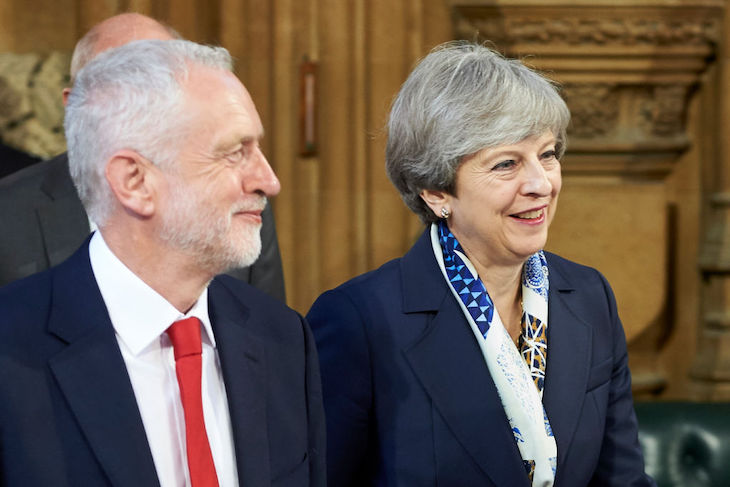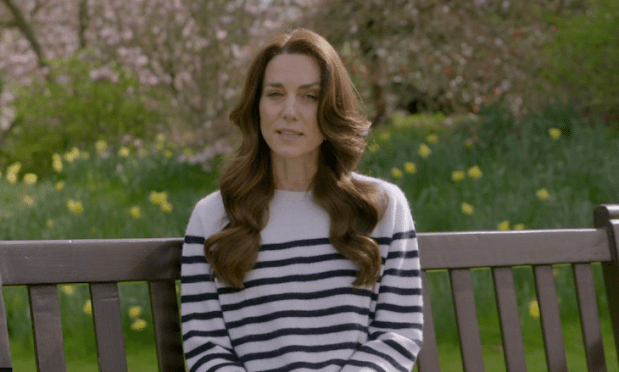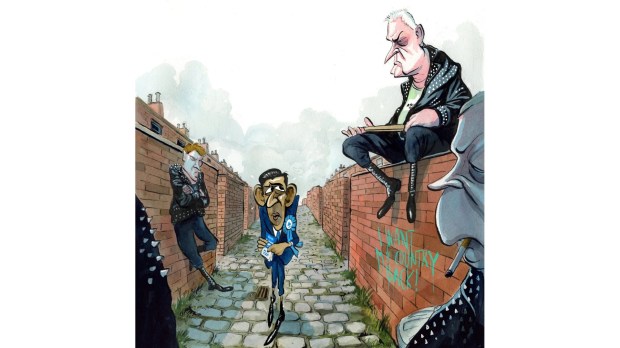What is the maximum point of danger for the government in the coming months? After Theresa May secured a six month Article 50 extension, many MPs along with the Tory grassroots are irate and calling for her to go. However, it’s still not clear how they could force the Prime Minister out before December (when she can once again face a confidence vote by her MPs). Meanwhile, the Brexit deadlock means that the majority of crunch votes result in no decision. Even if May moves to back a permanent customs union it’s not clear it will pass the Commons. The answer then could lie in the Queen’s speech – and whether or not the government tries to present one.
As Andrea Leadsom told her Cabinet colleagues earlier this month, the government has now completed the bulk of its legislative agenda for this session. There is no domestic legislation left. The only parts outstanding from the 2017 Queen’s Speech are Brexit ones that the government can’t currently pass. With the two-year Parliamentary session nearly complete, the hope in government had been that May would present the next Queen’s speech – setting out the government’s legislative agenda – in June. Clearly things haven’t gone quite to plan (and there is no date in the diary yet).
As I say in today’s i paper, this means that on return from the Easter recess, the government is faced with an unappetising choice. They can muddle on with no Brexit breakthrough and no government business to distract MPs with in the hope that something happens in the remaining five or so months of the Brexit extension. Or they can take a chance and bring forward one last vote on May’s Brexit deal.
With the House of Commons speaker John Bercow clear that he won’t allow the government to bring a vote on the same piece of legislation twice, whips believe they can force one more vote by putting it into the reading of the government’s one remaining bill: the Withdrawal and Implementation Bill. However, if MPs then rejected it, the government would have no choice but to prorogue Parliament and present a Queen’s speech.
Only a Queen’s speech is fraught with difficulties for a government which lacks a majority. Firstly, it presents an opportunity to bring down the government. If MPs vote it down, the government falls and an election likely follows. Secondly, the Tories’ confidence and supply agreement with the DUP only lasts the current session, so a whole new negotiation would have to take place to win the DUP’s support for the next session. Given that relations between Theresa May and Arlene Foster’s party are at an all-time low, this won’t be easy. Finally, the government needs to have a legislative agenda to present. With no agreement on Brexit and not much in the way of a domestic agenda (or a majority to achieve it), there’s little to hide the government’s modesty.
It’s for these reasons that there are ministers who believe the government would be best served to simply try and avoid a Queen’s speech at all costs. They argue such a vote could be the end for this shaky government so the best thing May can do is hang on – do nothing drastic on Brexit unless she is sure of the votes – and busy the government with various reviews and set-piece events. They say there is currently no majority – and warn that the DUP would not play ball. Then in November, when the Brexit extension ends, the party can reassess – perhaps once it has a new leader in place.
However, others believe that this is not a sustainable approach. Whether it’s the embarrassment of doing nothing for five months or MPs forcing the government’s hand, Cabinet ministers argue that the government must prepare a Queen’s speech. The more optimistic of them even say that this could help Theresa May by giving her a chance to draft her political obituary. The Prime Minister has said she will depart No. 10 before the second half of the negotiations take place. She doesn’t just want to be remembered for Brexit, or for not delivering Brexit. A new Queen’s speech could give May one last chance to set out her legacy by picking a small number of domestic issues to focus on in her final months.
Any Queen’s Speech could be ‘hijacked’ by a Tory faction and used to force government’s hand on Brexit. There has already been talk of a vote strike amongst the European Research Group in protest at the Prime Minister’s handling of Brexit. So, May would need to pick issues that these MPs would struggle to abstain on – issues such as veterans’ rights.
With the Cabinet leadership contenders calculating that their best chance at winning the top job comes from May sticking around long enough to take the flak for the Brexit deal, the Prime Minister appears to have longer in the job yet. She is technically safe from challenge until December. Jeremy Hunt and Sajid Javid know that any leadership contest now would turn into a bidding war on Brexit that they couldn’t win. So both would rather spend their time buffing up their CVs. This week, we are seeing how they’ll pitch for the job. Hunt is in Japan, being the statesman on the world stage. Javid is talking about his life story, how growing up on the most dangerous street in Britain formed his views on violent crime. It follows that the government may have no choice but to present a Queen’s speech.
Got something to add? Join the discussion and comment below.
Get 10 issues for just $10
Subscribe to The Spectator Australia today for the next 10 magazine issues, plus full online access, for just $10.




















Comments
Don't miss out
Join the conversation with other Spectator Australia readers. Subscribe to leave a comment.
SUBSCRIBEAlready a subscriber? Log in